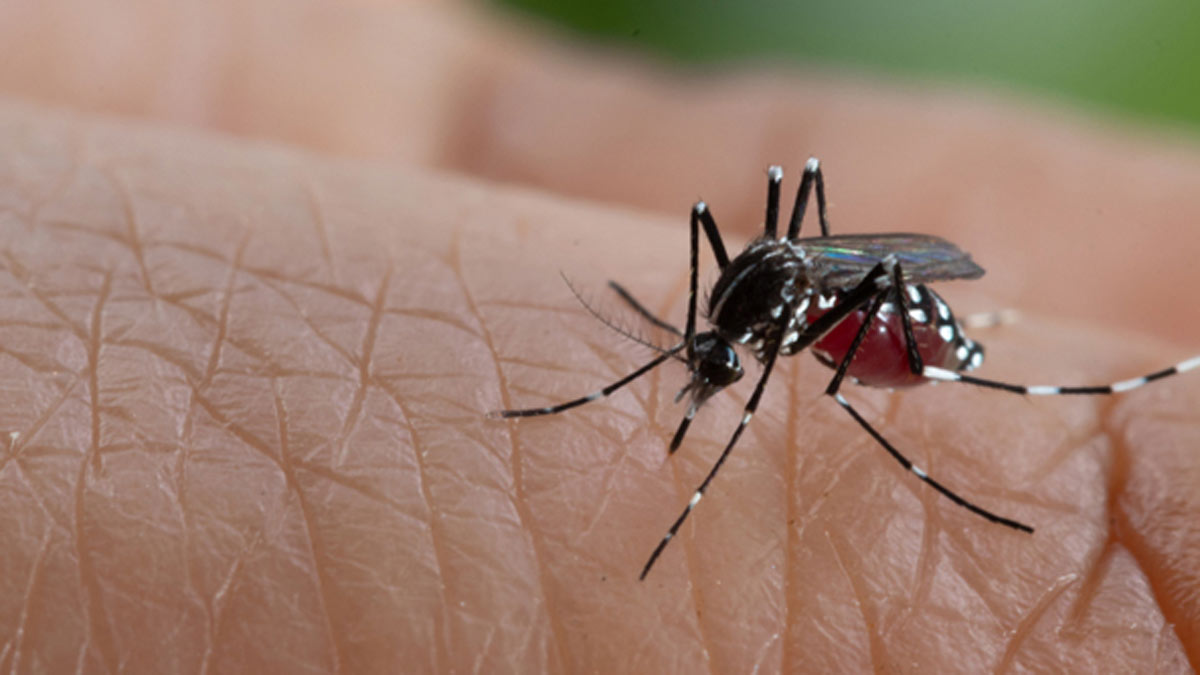The Indian Council of Medical Research (ICMR) and Panacea Biotec have initiated the phase 3 clinical trial for a vaccine to fight dengue. The trial will evaluate the efficacy of India’s indigenous tetravalent dengue vaccine, DengiAll, developed by Panacea Biotec.
The first participant in this trial was vaccinated on Wednesday at Pandit Bhagwat Dayal Sharma Post Graduate Institute of Medical Sciences (PGIMS), Rohtak. Based on the results of this trial, the vaccine will be rolled out for public use. The phase 3 clinical trials will take place at 19 locations spanning 18 states and Union territories and will involve more than 10,335 healthy adult participants.
Union Minister of Health and Family Welfare J.P. Nadda said the trial marks a critical advancement in the fight against dengue. “It reflects our commitment to protecting our citizens from this pervasive disease and underscores India's capabilities in vaccine research and development,” Nadda said.
According to the statistics of the National Centre for Vector Borne Diseases Control (NCVBDC), India has recorded 19,447 cases of dengue and 16 deaths till April 30, 2024. The data shows that Kerala and Tamil Nadu registered most number of cases. While Kerala recorded 4,412 cases and 14 deaths, the latter registered 4,204 cases and two deaths. Since April, dengue cases has been on a steady rise in Karnataka with more than 12,000 cases and eight deaths reported till July 2024. The number of dengue cases shot up from 6,187 on July 1 to 12,000 as of July 19 in Karnataka. In Delhi also, a total of 246 cases till June this year were the highest for the time period since 2019.
According to the health ministry, dengue is a major public health concern in India, ranking among the top 30 countries with the highest incidence of the disease. The dengue virus is transmitted to humans through the bites of infected female mosquitoes, primarily the Aedes Aegypti.
“Approximately 75-80 per cent of infections are asymptomatic, yet these individuals can still transmit the infection through the bite of Aedes mosquitoes. Among the 20-25 per cent of cases where symptoms are clinically apparent, children are at a significantly higher risk of hospitalisation and mortality,” according to the health ministry.
Currently, there is no antiviral treatment or licensed vaccine against dengue in India. The development of an effective vaccine becomes all the more complex as all four serotypes of dengue virus are known to circulate or co-circulate in many regions of India.
A statement from the health ministry said the tetravalent dengue vaccine strain, originally developed by the National Institutes of Health (NIH), USA, has shown promising results in pre-clinical and clinical trials worldwide. Panacea Biotec, one of three Indian companies to receive the strain, is at the most advanced stage of developing the vaccine. “The company has worked extensively on these strains to develop a full-fledged vaccine formulation and holds a process patent for this work. Phase 1 and 2 clinical trials of the Indian vaccine formulation were completed in 2018-19, yielding promising results,” the statement reads.
Phase 3 clinical trial for dengue vaccine begins
It will evaluate efficacy of India’s indigenous tetravalent dengue vaccine, DengiAll

TAGS
Join our WhatsApp Channel to get the latest news, exclusives and videos on WhatsApp
Read more
-

Zelenskyy to seek re-election? Ukrainian President planning to ditch 'Servant of People' brand
-

Who is Nishesh Basavareddy, the 19-year-old whom Novak Djokovic called 'complete player'?
-

Actor Unni Mukundan steps down as treasurer of Malayalam film body AMMA
-

Mahakumbh 2025: Air India to run daily flights between Delhi and Prayagraj
-

Human-driven climate change biggest contributor to Los Angeles fires: Study
*Articles appearing as INFOCUS/THE WEEK FOCUS are marketing initiatives

